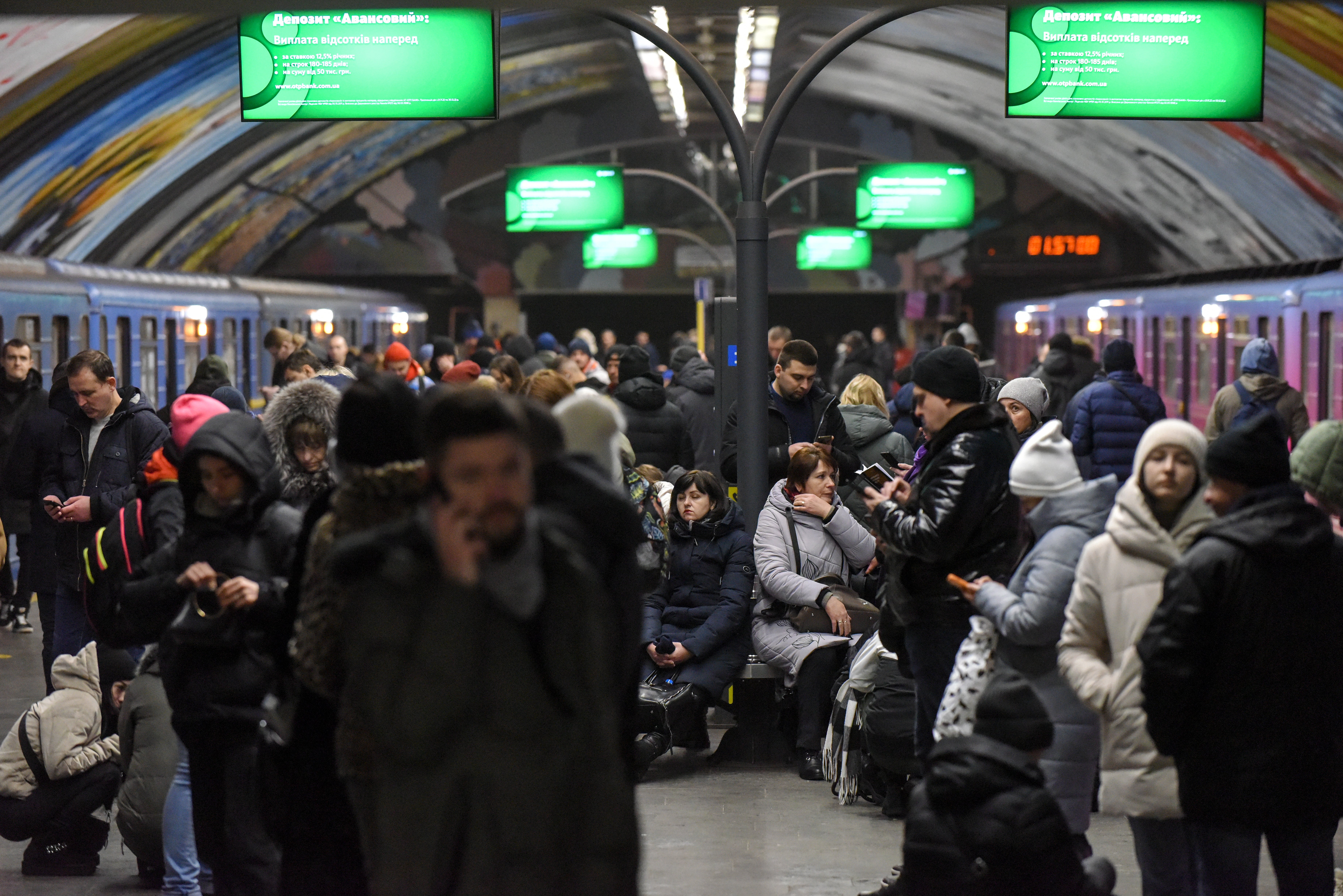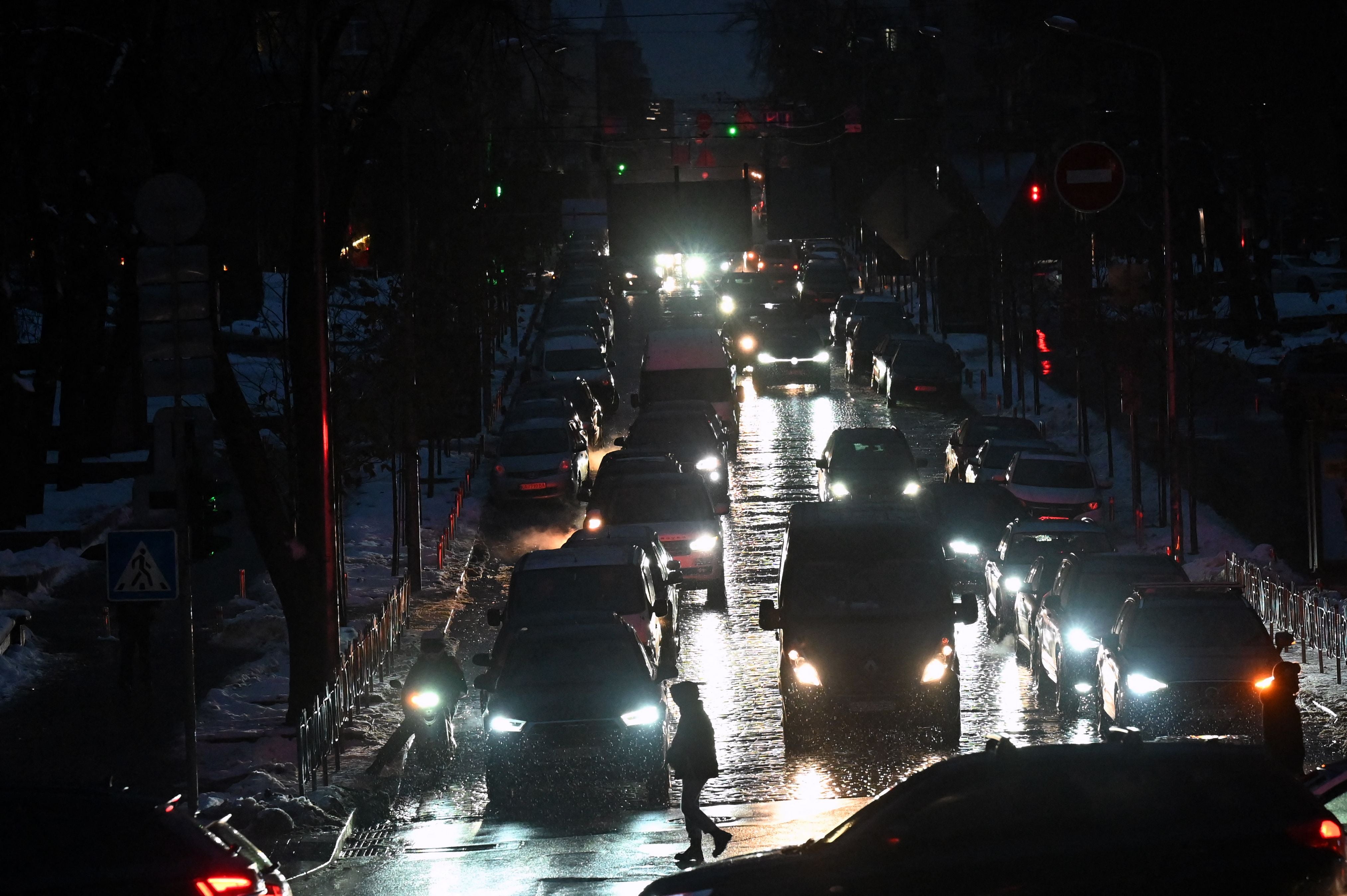Thousands left without water and power as Russian missile barrage hits Ukraine
Three people were killed during the airstrikes as Moscow continues to target civilian infrastructure

Russia launched a wave of missile attacks on Friday, with strikes in at least four cities, including Kyiv, triggering power outages across the country.
The barrage targeted critical infrastructure in the capital and also the cities of Kharkiv, Kryvyi Rih and Zaporhizhzhia.
Russian strikes on electricity and water systems have occurred regularly since mid-October as part of a strategy to increase civilian suffering during the winter months.
The head of Ukraine’s armed forces said 60 of the 76 Russian missiles launched were intercepted. At least three people were reported dead and several others injured.
More than half of the Russian missiles fired targeted Ukraine’s capital. Kyiv officials said the city had withstood “one of the biggest rocket attacks” it has faced since Russia invaded Ukraine.
Ukraine’s air force said Russian forces had fired cruise missiles from the Admiral Makarov frigate in the Black Sea, while Kh-22 cruise missiles were fired from long-range Tu-22M3 bombers over the Sea of Azov.
Electricity and water services were also interrupted in Ukraine’s second-largest city, Kharkiv. Oleh Syniehubov, Kharkiv’s regional governor, said the strikes had caused “colossal damage” to the city’s energy system.

“I ask you to be patient with what is happening now. I know that in your houses there is no light, no heating, no water supply.”
Thousands of people sought shelter in subway stations during the bombardment. State-owned grid operator Ukrenergo wrote on Facebook that emergency shutdowns were triggered across the country.
Priority in restoring power will be given to critical infrastructure facilities, including hospitals, water supply facilities, heat supply facilities, and sewage treatment plants, it said.
Friday’s attack was “the ninth wave of missile strikes on energy facilities”, Ukrenergo said, and because of the repeated damage, “the restoration of power supply may take longer than before”.
Analysts have said Russian strikes targeting energy infrastructure were part of a new strategy to try to freeze Ukrainians into submission after recent battlefield losses by Russian forces.
Officials and experts say that has only strengthened the resolve of Ukrainians to face up to Russia’s invasion, while Moscow tries to buy time for a possible offensive in coming months after the current battlefield stalemate.
In Kryvyi Rih, Volodymyr Zelensky’s hometown, a missile slammed into a four-story residential building and left a gaping hole in its upper floors, with rubble spilling onto the ground.
Two people were killed and at least 13 others were taken to the hospital, said Igor Karelin, deputy head of the city’s emergency services.
Rescue teams with sniffer dogs combed through the debris to search for a missing mother and her 18-month-old child.
The southeastern city of Zaporizhzhia and its surrounding region were hit by 21 rockets, city council secretary Anatoly Kurtev said. Lights went out in some areas, but there were no initial reports of injuries, he wrote on Telegram. Kharkiv mayor Ihor Terekhov said on Telegram that the city was without electricity.
Ukrzaliznytsia, the national railway operator, said power was out in a number of stations in the eastern and central Kharkiv, Kirovohrad, Donetsk and Dnipropetrovsk regions, due to damage to the energy infrastructure.
But trains continued to run by switching from electric power to steam-engine power, which had been readied as a backup.
In neighboring Moldova, the state-owned energy company Moldelectrica reported disruptions to its electricity network as a result of Russia’s strikes on Ukraine, and warned of a “high risk” of power outages.
Moldova – whose Soviet-era systems remain interconnected with Ukraine’s – has already suffered two massive blackouts in recent months as Russia attacked Ukraine’s energy grid.






Join our commenting forum
Join thought-provoking conversations, follow other Independent readers and see their replies
Comments